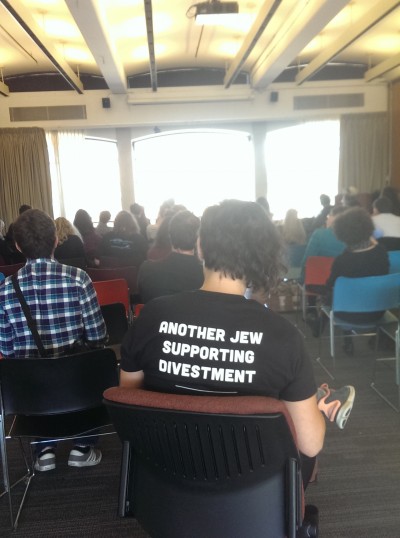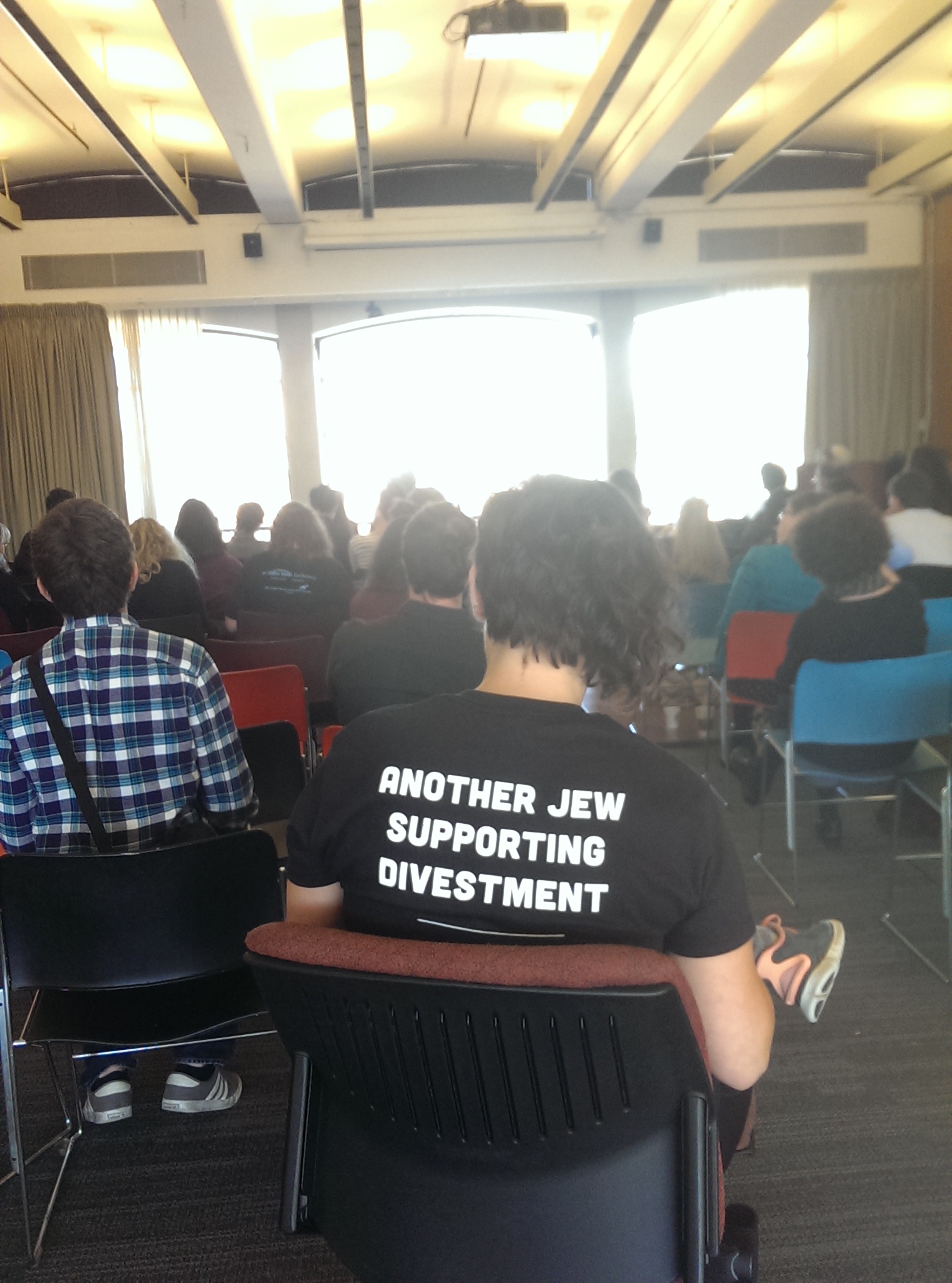
Though If Not Now, When? An Open Hillel Conference began at Harvard Saturday night, I wasn’t able to arrive until Sunday afternoon. When I got there, the swarm of familiar black t-shirts seemed to indicate my worst suspicions would be confirmed: This is basically a student JVP conference in disguise with some Jewish SJP activists thrown in for the sake of diversity. Judith Butler couldn’t go anywhere without being surrounded by groupies.
But as I looked around more, that became less clear. My first session was with representatives from Brandeis University’s BVIEW, a student-run initiative that opens up dialogue on the Conflict on campus by following Herzl’s philosophy of gathering together “socialists, fascists, and liberals” to “make them realize their conflicts are part of the solution.” They get people into dialogue with each other by redefining the whole conversation, as the speaker, Gil Zamir pointed out, you can’t change the conversation from the position of advocating for one position. “To change the conversation, don’t change the volume, necessarily, rather change the marketing to get people who wouldn’t ordinarily go.” Expect to hear more about them in New Voices soon.
THE PLENARY
The highlight of the day was, by far, the plenary, “Where Do We Go From Here?: A Debate About the American Jewish Community’s Role in Israel-Palestine,” featuring J Street U head Sarah Turbow, JVP head Rebecca Vilkomerson, Peter Beinart, and Professor Mark LeVine, who advocates for 2 “parallel states.” It set out to solve the Conflict in ninety minutes or less, or in one Miss America-esque low-light, in two sentences or less. The panel introductions provided a litmus test of leftist affiliation for the audience. Despite JVP’s loud and active presence at the conference, the applause for Turbow and Vilkomerson were about equal, with Beinart and LeVine receiving far less at first, which makes sense considering they were there representing themselves, not organizations.
What everyone agreed on was made clear at the onset by the moderator, Open Hillel student organizer Justin Szasz—that the current situation is untenable and immoral, what Turbow called “a stain on the soul of the Jewish People.” Though I at first had misgivings about a panel that made Peter Beinart sound like a rightist, what followed was a robust, spirited, diverse, meaningful, and truly inspiring debate about what, as they termed it, a “final solution for ending the Occupation” should look like and what role American Jews should play in it. While it was obvious each speaker had their camp in the audience, it was equally clear that each was learning something new. Or maybe not; as I overheard a JVP student say afterward, “I just kept clapping after everything Rebecca said, though I clapped for the others sometimes too because I felt bad.”
Still, I think that plenary was itself the best possible argument in favor of the Open Hillel movement. Every student, every Jew, and really every person would be better off if they were there to hear that debate, and that it couldn’t have happened at a Hillel under the current system is a tragedy for Israel conversations everywhere. If the right doesn’t like it, let them throw their representatives into the fore. The whole point here is that there is something to be learned from everyone.
MORE ABOUT THE STUDENTS
After the plenary, the previous New Voices Rebbe, David A.M. Wilensky, and I were discussing what the applauses at the plenary said about the student make-up of the conference, and he raised several excellent points: Though JVP students are loud and proud at the conference (and significantly overrepresented among the organizers), the majority of students here probably fall somewhere in that murky area between J Street and JVP, nominally represented in the wider world by organizations such as Americans for Peace Now and Partners for Progressive Israel, that have next to no serious presence on campus, making students who might align with them choose an organization that is not really a perfect fit for them. Other Leftist Jewish organizations should note this and get on that.
Unsurprisingly, they are also overwhelmingly from schools in the Northeast.
MY SESSION
For the last breakout session of the day, I had the pleasure of hosting a panel on the Israel-Palestine Conflict in the Media with panelists Suhad Babaa, the director of programming at Just Vision, an organization dedicated to increasing media coverage and support of Palestinian and Israeli grassroots leaders working to end the occupation and conflict through nonviolent means and Alex Kane, a graduate student in journalism at NYU who has served as editor of Mondoweiss and Alternet. Rather than go into details of a session that was technically closed to the press anyway, I think it would be best to leave you with the questions I was left with:
- How much influence do sponsors have over what gets covered in the media?
- What should the balance between talking head “experts” and actual people in the street be?
- How does where a reporter is located influence the way the report? If a reporter can’t live in a place, is that part of the story?
- How do the words we use, like “assault” versus “war,” “militant” versus “terrorist” effect the way we report, and therefore understand how events transpire? Do our words more reflect our perceptions or do our perceptions more effect our words?
HILLEL INTERNATIONAL’S INVOLVEMENT OR LACK THEREOF
Hillel International had no official presence at the conference, and while this says a lot about Hillel, it doesn’t mean much as far as the overall success of the conference goes: The point here was for the organizers, who are largely from schools with Open Hillels, to create an Open Hillel-like atmosphere for students who don’t have one. These students will leave inspired by this model and empowered by the things they learned here to work seriously towards creating Open Hillels back home. I can tell you that the “inspiring and empowering part” is proving extremely successful right now. Whether these students can actually go home and make their home Hillels Open or not, I’m quite sure this will be the last Open Hillel conference without any presence from Hillel International.
Derek M. Kwait graduated from the University of Pittsburgh and is the editor in chief of New Voices.

